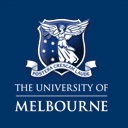Full description
The Orygen Adolescent Development Study (ADS) is a prospective longitudinal study that aims to address core questions regarding biological and environmental risk factors for the development of depression and other psychopathologies with common onset during adolescence. The study is based at Orygen Youth Health Research Centre, with the Melbourne Neuropsychiatry Centre a key collaborator. The study began in 2003 and has been running for almost 10 years. We have established a cohort of 237 Australian adolescents, who were selected from a wider community sample (approximately 2500, from 100 representative primary schools around metropolitan Melbourne, Victoria, Australia) to encompass a wide range of temperamental risk for later emotional problems. The participants were comprehensively assessed at ages 11-13 years using a multi-method multi-source battery of validated measures of brain structure, temperament, family processes, and psychopathology. An initial follow-up assessment was conducted when adolescents were aged 14-15, which included diagnostic interview and questionnaires only. Further follow-up assessments, consisting of Magnetic Resonance Imaging (MRI) scans, questionnaires and diagnostic interviews, have been completed when participants were aged 15-17 and 17-19. We have also collected information on genetics and family history of psychopathology. These data will enable prospective examinations of the interrelations between genetic, neurobiological, psychological and environmental factors in explaining risk for the emergence of psychopathology during adolescence. Phase 1 of the study refers to assessments conducted when participants were 11-13 (2004-2005), and imaging data from 155 are avaialable. Subjects
User Contributed Tags
Login to tag this record with meaningful keywords to make it easier to discover


